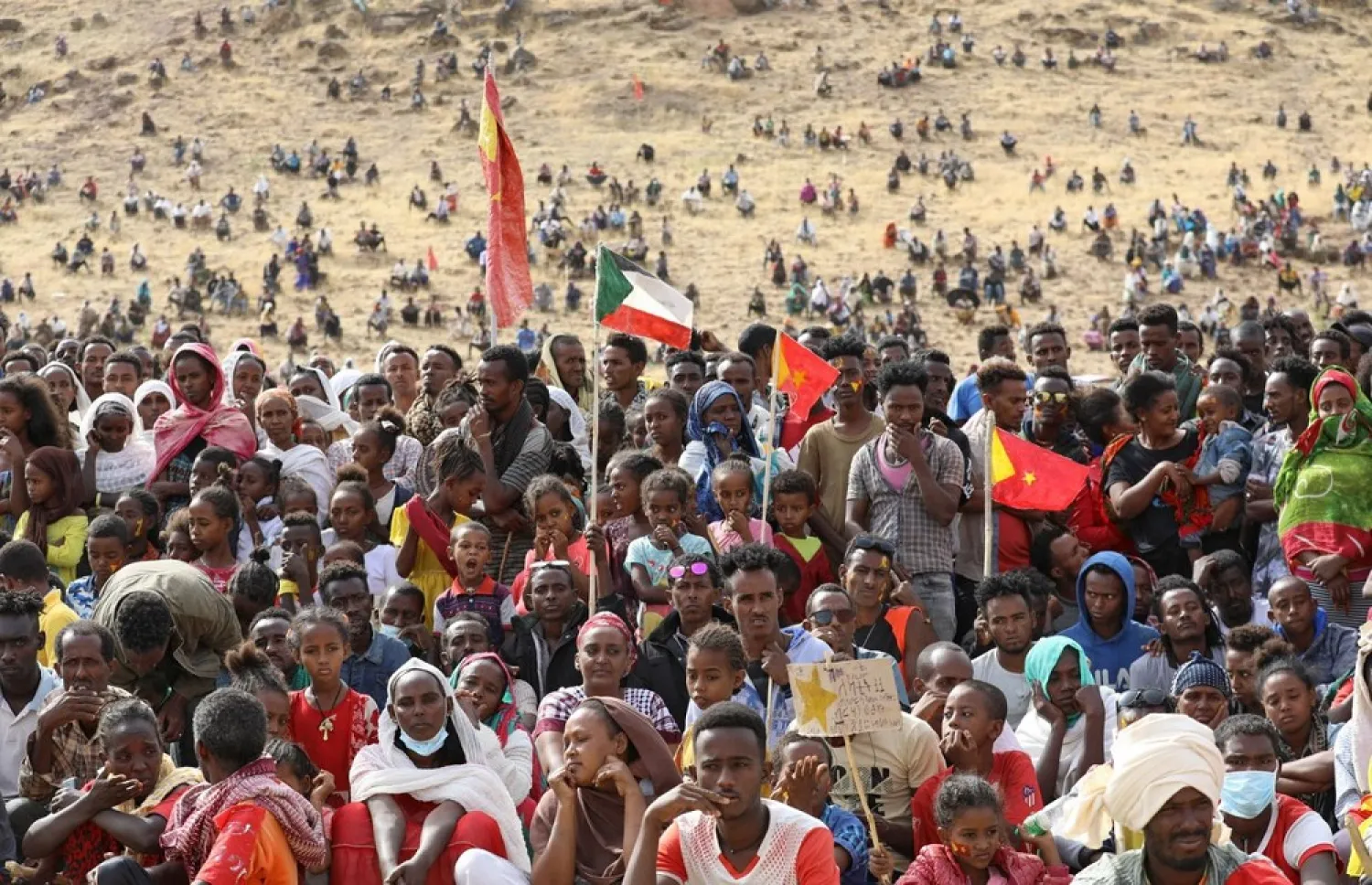A decades-old border dispute over fertile farmland between Sudan and Ethiopia is feeding regional rivalry and even sparking fears of broader conflict, analysts say.
The border quarrel is over Ethiopian farmers cultivating land claimed by Sudan -- but it is also stoking wider tensions over Ethiopia's Blue Nile mega-dam, which downriver Khartoum and Cairo view as a threat to their water supply.
The territorial argument also comes amid the fallout from unrest in Ethiopia's troubled Tigray region, with tens of thousands of refugees having fled into Sudan.
Who owns the land?
Arguments over Al-Fashaqa, an agricultural area sandwiched between two rivers, where Ethiopia's northern Amhara and Tigray regions meet Sudan's eastern Gedaref state, date back decades.
With the zone contested, the exact area is not clear, but Al-Fashaqa covers some 12,000 square kilometers (4,630 square miles), an area claimed by both Sudan and Ethiopia.
But analysts and observers point to a flashpoint zone directly along the border, covering some 250 square kilometers (just under 100 square miles).
On paper, according to colonial-era treaties from 1902 and 1907, the international boundary runs east of Al-Fashaqa, meaning the land belongs to Sudan, according to Alex de Waal, a professor at Tufts University in the US and an expert on the region.
But on the ground, over the years, thousands of Ethiopian farmers have entered the region to cultivate land during the rainy season.
At times, Sudanese forces have sought to expel the farmers, only for them to return.
Tensions soared in 1995, according to analysts, when relations between Khartoum and Addis Ababa soured after a failed assassination attempt against Egypt's then president Hosni Mubarak while he was in Addis Ababa.
Ethiopia blamed Sudan for the attack, and then pushed into Al-Fashaqa, allowing its farmers to cultivate land there.
Since then, thousands of Ethiopian farmers have settled in the area, working the land and paying taxes to Ethiopian authorities.
Khartoum and Addis Ababa have held border talks over the years, but no clear demarcation lines were ever marked out.
Why have tensions escalated?
Al-Fashaqa lies close to Ethiopia's troubled Tigray region, where deadly conflict erupted in November between Ethiopia's federal and Tigray's regional forces.
The fighting sent some 60,000 Ethiopian refugees fleeing into Sudan.
As violence in Ethiopia came closer, Khartoum sent troops into the Al-Fashaqa region, "to recapture the stolen lands and take up positions on the international lines," Sudan's state media reported.
"Authorities feared the situation in Tigray would slip out of control, and armed fighters infiltrate into the country," Sudanese military expert Amin Ismail said.
Ethiopian Prime Minister Abiy Ahmed has leaned heavily on security forces from his country's Amhara region during the fighting in Tigray.
Amhara officials view Al-Fashaqa as rightfully theirs, and there are fears Abiy will struggle to keep expansionist elements in check.
In December, Khartoum dispatched reinforcements to Al-Fashaqa after "Ethiopian forces and militias" allegedly ambushed Sudanese troops, killing at least four soldiers.
Tensions escalated, although Addis Ababa sought to downplay the fighting.
A string of deadly clashes followed, with both sides trading accusations of violence and territorial violations.
Sudan has in recent weeks claimed to have regained control of large swathes of the region, insisting it had always fallen within its boundaries.
Meanwhile, Addis Ababa accused Khartoum of having "invaded land that is part of Ethiopia's territory", warning it would resort to a military response if needed.
What are the risks?
Both Sudan and Ethiopia face their own domestic challenges, including economic woes and deadly conflicts.
Sudan is navigating a rocky transitional period following the April 2019 ouster of dictator Omar al-Bashir.
Aside from Tigray, Ethiopia faces internal unrest including in the Benishangul-Gumuz and Oromia regions.
The border tensions have intensified strains in relations between Khartoum and Addis Ababa, who, along with Egypt, have failed to strike a deal over the filling and operation of Ethiopia's Blue Nile mega-dam.
The Grand Ethiopian Renaissance Dam, set to be Africa's largest hydroelectric project, has been a source of tension in the Nile basin ever since Ethiopia broke ground on it nearly a decade ago.
Sudan views the barrage as a threat to its own dams without a binding deal over the filling and operation of Ethiopia's dam.
Khartoum is nowadays diplomatically close to Cairo. This month, top Egyptian and Sudanese army officials signed a deal on bilateral military cooperation.
Egypt, which depends on the Nile for about 97 percent of its irrigation and drinking water, sees the dam as an existential threat.
The border dispute is a local issue separate from the dam, but it feeds into wider politics.
Sudanese military expert Ismail believes Sudan and Ethiopia will have to find a diplomatic resolution to the border crisis, saying "there cannot be an all-out military confrontation.
"It is simply not in the interest of both countries," Ismail said. "It will be a major risk for both sides."
















